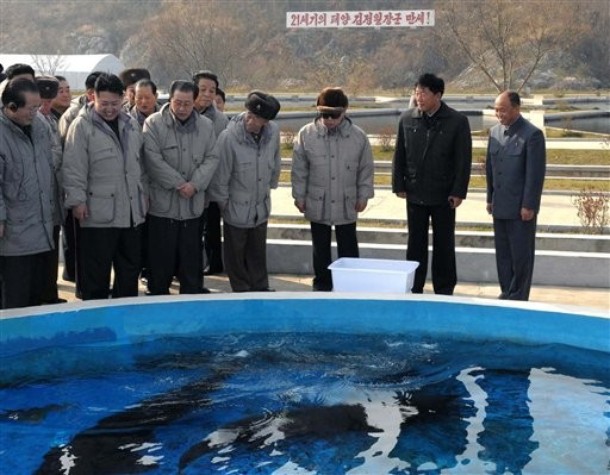Should the U.S. engage North Korea?

Daryl Kimball says that the recent revelations that North Korea has a more sophisticated uranium enrichment capacity than was previously thought means the Obama administration should get back to the negotiating table:
Since there is no viable or prudent pre-emptive strike option and punitive sanctions alone cannot stop North Koreaâ??s nuclear and missile buildup, the latest crisis requires a renewed diplomatic push, led by Washington, combined with the implementation of more effective economic, military, and political sanctions that have the full support of North Koreaâ??s main trading partner, China.Containing combined North Korean plutonium AND uranium enrichment programs will likely be even more difficult this time around. North Koreaâ??s leadership is difficult to deal with for sure. But it is imperative that U.S. leads talks aimed at freezing and then verifiably dismantling Pyongyangâ??s nuclear weapons program without further delay.
There's nothing wrong with re-engaging North Korea per-se, but is it really possible, in 2010, to believe that said talks would lead to the freezing, much less dismantling of the North's nuclear program? During arguably the most fruitful years of diplomatic engagement - President Clinton's Agreed Framework - the U.S. was able to slow, but not stop, North Korea's nuclear pursuits. Now, slowing down North Korea is a very good idea vs. a policy of doing nothing (or relying solely on sanctions and "strategic patience") and watching them gallop along toward a larger and more sophisticated nuclear arsenal. But all too often proponents of engagement tend to fall prey to the same temptations that more hawkish commentators do in overselling the virtues of their preferred solution.
As for China, they have not been all that enthusiastic about putting the screws to North Korea. And that was before President Obama's containment tour Asian tour.
(AP Photo)



